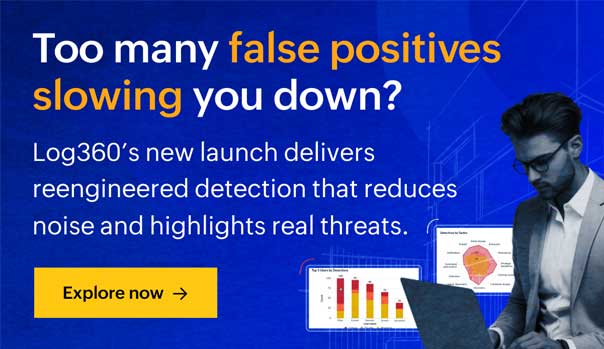What is a security operations center?
In this page
- What is a security operations center?
- How did the security operations center come to be?
- Why are security operations centers essential?
Back in the day, defending a traditional network fortress involved a combination of physical defenses and strategic planning. Because the complexity of network infrastructures has increased and we are interconnected through the digital landscape, safeguarding this virtual realm is of the utmost significance. This is where a security operations center (SOC) comes into play.
Read further to understand SOCs, their evolving role in safeguarding our digital realm, and much more.
What is a security operations center?
A security operations center, also known as an information security operations center (ISOC), is at the core of a well-structured cybersecurity strategy. It's more than just a room filled with screens and security experts; it's the focal point of a complex defense mechanism.
A security operations center is a centralized hub, either within the organization or outsourced, dedicated to around-the-clock surveillance of the entire IT infrastructure. The SOC team is primarily tasked with identifying, analyzing, and responding to cybersecurity incidents and threats in real time, swiftly and efficiently.
The SOC team's purpose is simple: Protect and maintain the organization's digital assets and sensitive data and ensure business continuity. SOC team members regularly analyze threat data to seek ways to improve their organization's overall security posture.
How did the security operations center come to be?
Security operations centers have come a long way since their inception. They were initially reactive, primarily focusing on incident response. But as threats grew in complexity and number, they had to evolve. Today's security operations centers are proactive, employing advanced tools, threat intelligence, and analytical strategies to identify and mitigate threats before they even manifest. This evolution is driven by the ever-shifting landscape of cyberthreats.
Why are security operations centers essential?
The increased interconnectedness of systems in a network has also increased exposure to various cyberthreats as more systems are connected online. While digital transformation provides convenience, it has expanded the attack surface and avenues for exploitation. A security operations center is vital for executing an organization's overall cybersecurity strategy. The SOC acts as the main hub for monitoring, assessing, and defending against cyberattacks through coordinated efforts.
The following are some of the reasons why security operations centers are indispensable against ever-evolving threats:
Early threat detection
Security operations centers constantly monitor networks and systems 24/7 and are on the lookout for unusual patterns or anomalies. This early detection allows for the identification of potential threats before they can escalate into major security incidents.
Rapid incident response
Immediate response is essential to stop an attack from progressing further and to minimize harm. When a security incident occurs, a SOC team has well-defined procedures and the necessary tools to neutralize threats and mitigate the damage quickly.
Compliance with regulations
Many industries have strict regulations regarding data security. A security operations center is critical to ensuring that the organization complies with industry legislation and standards. A SOC team puts controls and procedures in place and offers documentation for audits, helping the organization avoid legal consequences and financial penalties.
Business continuity
By proactively identifying and addressing security issues, security operations centers help maintain the continuity of business operations. This prevents downtime and financial losses due to cyberattacks.
Threat intelligence
As the front line of defense against evolving cyberthreats, security operations centers analyze and share threat intelligence to stay ahead. This helps organizations adapt their security measures to address new and emerging risks.
The reduction of false positives
By leveraging contextual information, security operations centers can more effectively discern genuine threats from false alarms. This involves using key indicators, such as the reputation scores of IPs attempting to access critical servers or the geolocations of IPs trying to connect to the VPN. Such insights provide a clearer understanding of network behavior, allowing for a more targeted response to actual security risks. This approach not only saves time and effort but also enhances organizations' overall efficiency in addressing real cyberthreats.
With digital threats looming at every turn, security operations centers have become essential. They play a critical role in early threat detection, rapid incident response, compliance with regulations, business continuity, and the ongoing battle against evolving cyberthreats.


